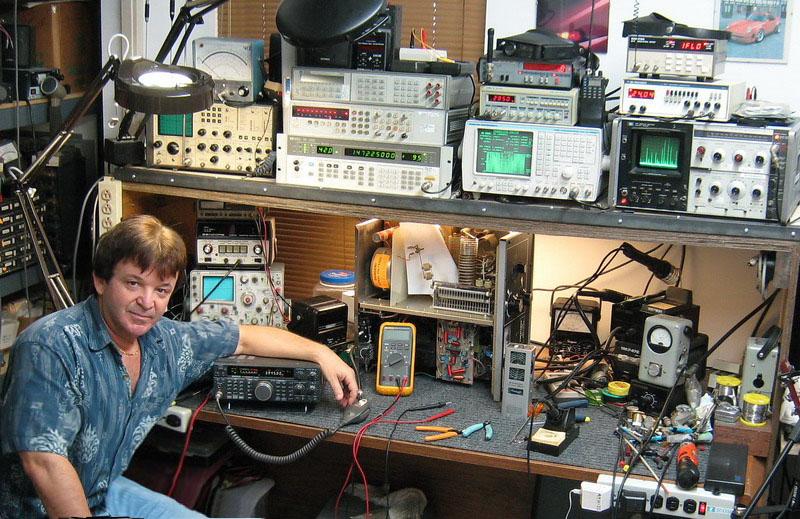This article is intended as a reference and does not represent a guarantee or implication that NYFA graduates or others reading this article will obtain a job in their chosen career nor can salary be predicted since each job and the salary associated with it depends on the individual attributes of each applicant and on circumstances not within the control of any applicant.
The TV and broadcasting is a tough nut to crack, but once you get your foot on the job ladder, a long and varied career can be set out before you.
To help you find your way forward, we’ve compiled the following list of major jobs within TV and broadcast journalism, along with how you can get into them and how difficult it is to do so. We also have similar glossaries for movie production and photography jobs for those looking to enter into those fields.
Broadcast Journalist
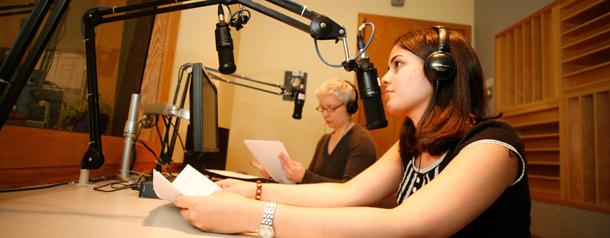
Although a catch-all term for many roles within the industry, broadcast journalists constitute a core part of the news team (particularly with regards to television broadcasting). Depending on the production, a broadcast journalist may be involved in editing, reporting, acting as a correspondent, or carrying out duties such as news presenting or anchoring.
Broadcast Journalist Career Path: Most professionals in the field start out studying at broadcast journalism school before taking on entry level jobs and internships. If you’re looking to become a fully-fledged reporter or newscaster, it’s very much a case of working your way up from the bottom.
Pros: You’ll be right in the thick of the action, and no two days are ever the same.
Cons: The lower rungs of the career ladder for broadcast journalists can be something of a grind, so be prepared to do a lot of menial work in order to get your foot in the door.
Difficulty: 6/10
Broadcast Engineer
A TV or news production would be nothing without a broadcast engineer, a highly qualified professional in charge of making sure everyone else’s hard work is viewable to the world. In charge of pretty much every piece of hardware and equipment between the studio and the transmitter, sometimes he or she will work alongside other electrical engineers (specializing in the audio, for example) or on smaller productions may be required to keep it all running smoothly.
Broadcast Engineer Career Path: Electrical engineering qualifications are almost mandatory. This is one of those jobs in which it’s very rare to find someone who trained on the job, although that kind of experience is worth its weight in gold.
Pros: Since it’s a highly specialized field, the salary usually matches this. It’s also a dream job for those who like to get elbows-deep in wiring and schematics in order to solve problems.
Cons: The pressure can be enormous. If a single, hidden electrical fault brings the whole broadcast to a halt, it’s all on you.
Difficulty: 8/10
Newscast Director
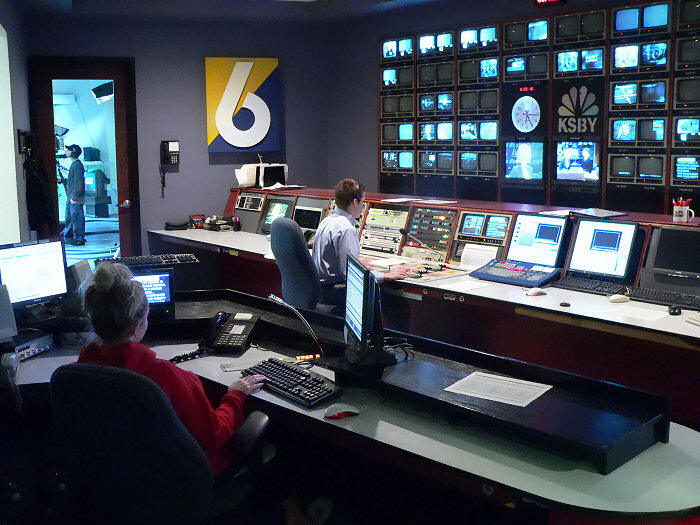
If a news broadcast studio is an orchestra, the newscast director is the conductor. Usually found in the gallery, they’re responsible for calling the shots while a show is going out on air, selecting camera shots, rolling VTs on cue and coordinating reporters and guests on the studio floor.
Newscast Director Career Path: Like many jobs in broadcast journalism, a newscast director usually works their way into the role from junior positions. A degree in broadcast journalism can advance this career path, but isn’t strictly necessary if you manage to secure internship work and are happy to put in the years.
Pros: Being the puppet master behind all the strings in the gallery is its own reward, but the payscale certainly doesn’t hurt either.
Cons: Naturally, it’s a lot more difficult than it sounds.
Difficulty: 7/10
Teleprompter Operator
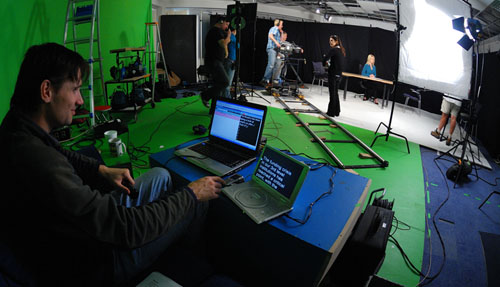
One of the most publicly-recognizable jobs in news broadcasting and presenting, a teleprompter operator is in charge of the equipment that delivers lines to those in front of the cameras. It’s a much more nuanced job than many would think, involving careful coordination with a number of team members, an extraordinary attention to pre-planning and the ability to think on one’s feet.
Teleprompter Operator Career Path: Being a fairly specialized and unique discipline, it isn’t always easy to switch over to teleprompting from a different role in broadcasting. As such, training in this area is advised.
Pros: There’s plenty work out there for a conscientious teleprompter operator.
Cons: It’s not hugely well paid given the expertise required.
Difficulty: 6/10
Voiceover Artist
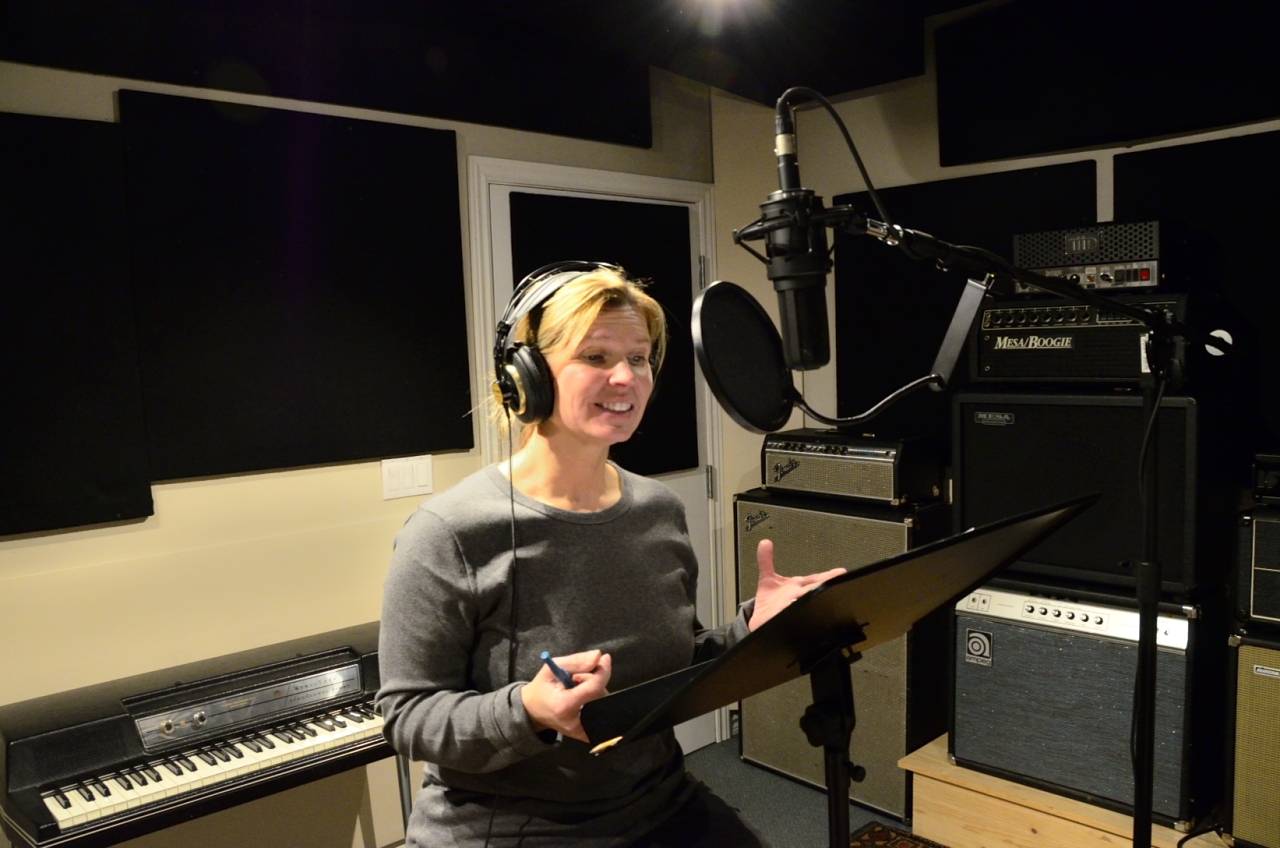
Although typically associated with commercials and animation, there is plenty of call for voiceover artists within the field of broadcast journalism. An overdubbed audio segment can sometimes be planned from the outset, or could also be added in post-production in order to facilitate smooth editing or to correct flaws in the original audio track.
Voiceover Artist Career Path: With a lot of competition out there, it can be exceptionally difficult to break into regular paying work. Akin to similar roles in the entertainment field, networking and a good agent can pay dividends (and acting school should be considered in order to hone marketable skills.)
Pros: Though the work requires a lot of talent, the working conditions are far from horrible and the pay per hour is tremendous.
Cons: As above – breaking into paid work is no less difficult than other forms of acting.
Difficulty: 9/10
Field Producer
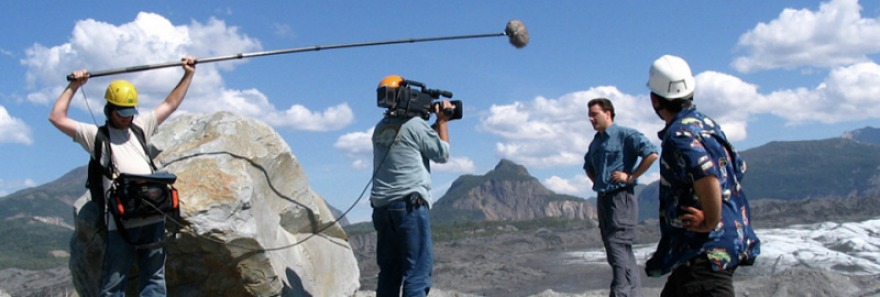
Naturally, a lot of shooting for news stories and documentaries occurs outside of the studio. While the folks back home have got a full crew on hand to keep things going smoothly, studios often won’t budget for a large team to travel across the country to shoot. That’s where the field producer comes in – as well as running the small crew on location and coordinating efforts to get the footage in the can, he or she will act as the main communication point liaising between studio and field team.
Field Producer Career Path: Pretty much the same as any other managing broadcast role… you just need to convince your superiors to send you out there.
Pros: Naturally, you’ll get to travel to some exotic locales.
Cons: And some not so exotic locales.
Difficulty: 7/10
Researcher
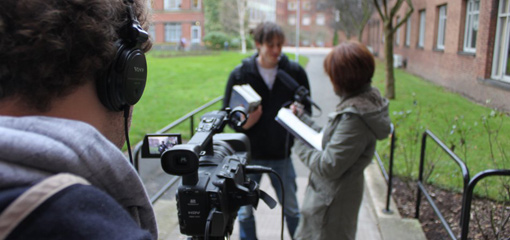
What one researcher does on a TV production is often markedly different from the roles carried out by another. Of course, researchers are essential on factual documentaries and news broadcasts, but fact checking is also integral to dramatic work. Far from being just a number cruncher and fact checker, a researcher often has a lot of say on how a newscast or documentary is developed and is usually charged with figuring out which third parties contribute with, arrange interviews, figure out legalities and budgetary constraints, and a whole host of other pre-production duties.
Researcher Career Path: A researcher can sometimes work in a specific field, i.e sports of history, and as a result usually has a related Masters degree or PhD. However, this is rare – usually researchers will be experienced in broadcasting first and foremost before going on to specialise as a researcher in a particular field.
Pros: Given the influence a researcher can have on the finished product, the satisfaction of a job done well is off the chart.
Cons: The work of a researcher is often understated, and the job involves long hours. Extremely long hours.
Difficulty: 6/10
Runner

In the world of broadcasting, a runner is usually considered at the bottom of the career pile. Answering the phone, cleaning up a set at the end of the day, bringing the presenter a coffee, helping keep the public from interrupting a location shoot… the list of odd jobs a runner gets tasked with is virtually endless.
TV Runner Career Path: Every show needs runners, and very few require prior qualifications.
Pros: Want a career in TV? Start here!
Cons: Menial, poorly paid and a lot of job insecurity.
Difficulty: 2/10
Gain an understanding of the research, production, and editing processes that go into creating digital news segments. Learn more about our broadcast journalism offerings by visiting our Broadcast Journalism School page.
